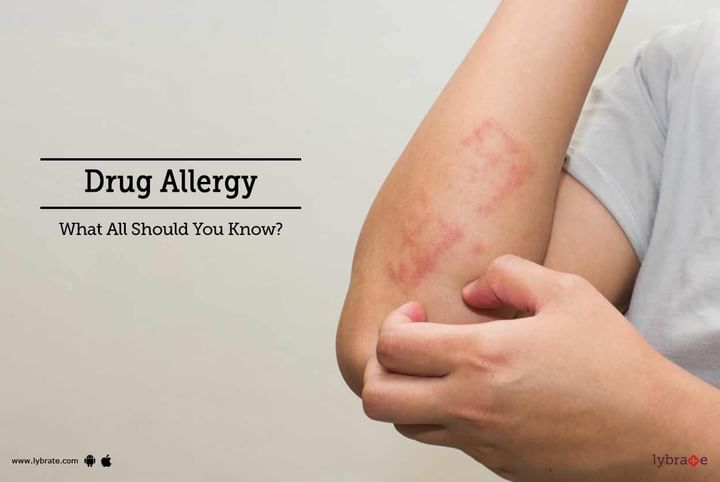Drug Allergy - What All Should You Know?
A drug is used to treat a health issue or a disease, but it can rarely happen that the drug itself can cause an allergic reaction. Read on to know more about important things you must know about drug allergy.
What leads to a drug allergy?
The body’s immune system identifies any trigger as an antigen and produces “antibodies” to fight the antigen. It can, however, rarely happen that the drug itself can turn out to be an antigen and trigger the production of antibodies. There is a slight difference between side effect and allergy caused by a drug.
While a side effect will be seen in almost any person who takes it, the allergic reaction to a drug is based on the person’s immune system. A weakened immune system has a higher chance of triggering a drug allergy. For instance, steroids have the side effect of increasing sugar levels, whereas penicillin causing anaphylaxis is an example of a drug allergy.
A side effect may sometimes be positive too; however, a drug allergy is almost always negative.
Another aspect also is to note that a drug allergy may disappear over a period of time.
Possible drugs causing allergies:
- Antibiotics like penicillin and sulfa drugs
- NSAIDs (nonsteroidal anti-inflammatory drugs)
- Chemotherapy drugs
- Aspirin
Kinds of drug allergies: While there are many drugs which can cause minor allergies like a rash, there are some which could have a life-threatening effect. Anaphylaxis, for instance, can be very dangerous, and if not immediately attended to, can even cause death. Most often though symptoms include irregular heartbeat, swelling, and difficulty breathing.
Treatment of drug allergies:
For mild drug allergies, if the drug is critical for improving health, then the doctor can choose to continue the drug and give another drug to control the reaction.
However, if the reaction is severe, then an alternate needs to be given so that the health is taken care of, without causing a severe allergic reaction. Some common agents used to treat drug allergies are listed below:
- Antihistamines: Most allergic reactions are associated with the release of increased amounts of histamine. Therefore, antihistamines are used which can be used to control symptoms like swelling, redness of eyes, itching, and rashes. These can be used as eye drops, nasal spray, creams, or tablets.
- Corticosteroids: Often used to control overall inflammation and used in managing symptoms related to airways.
- Bronchodilators: If there are issues relating to breathing and chest tightness, this class of drugs are used.
Be frank with your doctor and tell any reaction you might notice. When having future surgeries, including dental, let the doctor know about your allergy. In case you have a concern or query you can always consult an expert & get answers to your questions!



+1.svg)
